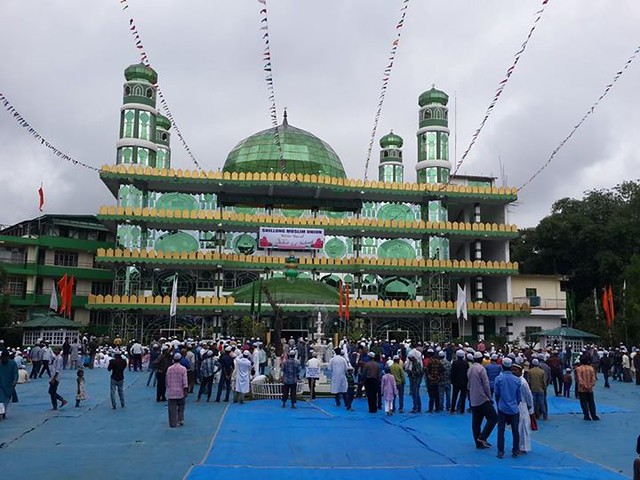By Dr Kouser Fathima for TwoCircles.net,
Mosques or Masjids are typically a place of worship where the Muslims gather to pray in congregation. Over the years Masjids have been playing an important role in the Muslim societies but sadly the role of these Masjids is changing today. Initially the masjid was not merely a place of worship but used to be a center of all activities in Muslim society. Everything from prayers, sermons, education and welfare activities took place in and around the Masjid .
Historically the first task the Prophet Muhammad (PBUH) undertook after migration to Madinah, was to build a Masjid for the Muslims. The first Masjid in Madinah was located next to the Prophet’s house , was an open air building that welcomed all Muslims and eventually a proper structural Masjid was constructed. This was later named ‘Masjid-e-Nabvi’.

According to Sahih Bukhari, the most authentic book of sayings of prophet (PBUH), the Masjid was center of all activities during the time of Prophet and caliphs. People would gather there for prayer, have discussions and it was a center of learning, center of judiciary and most importantly Masjids were the centers of administration and welfare. The Prophet (PBUH ) as the leader of Muslims would conduct all administrative work of the Islamic world from the Masjid . He welcomed and met the envoys from other places, signed pacts and treaties in the Masjid , rules of war were framed there , war booty was distributed inside the Masjid and people injured in wars were treated and housed in Masjid until they recovered.
Masjids were also centers for justice, for any dispute people would come to the Masjid to get it resolved. Not only this but Masjids were centers of charity where zakat and sadaqat was collected and distributed to the needy . Further these Masjids were hub for education ,almost all Masjids had schools that taught about religion, Fiqh and also other relevant subjects. Travelers would take shelter and rest there, people would distribut food to the people in the Masjid . All people irrespective of race, status, gender had equal and undisturbed access to the Masjid day and night.
Even after the demise of Prophet (PBUH) the Caliphs continued this tradition and made Masjids as the most important centers for Muslims welfare. Most Masjids had libraries, encouraged literary activities and ran courses for the poor to help them gain knowledge and employment.
During the rule of Mughals in India, the Masjids were financed and maintained by the royal family. Theygenerously donated land and money to Masjids and helped in building libraries, saraya (rest houses) and schools adjoining Masjids.
However, today Masjids have been reduced to merely prayer areas that also with limited accessibility. Many Masjid in India strictly don’t allow women while some do allow them but hardly makes any arrangement for accommodating them. There are very few Masjids that have welfare centers attached, hardly any hospitals run by them. Though most Masjids have Madrassas attached, but very few have any centers running vocational courses for the youth. Negligible Masjids have attached libraries or designated resting area for travellers.
Ironically most of the present day Masjids are large, well built and some are grand but they no longer can be called as the center for Muslim societies . In contrast the churches and Gurudwaras seem to be following the model prescribed by Islam. Both of these places are not considered merely the places of worship but welfare centers wherein the poor and needy go to seek help.
The Langar in Gurudwara provides food to all , poor and rich and also instills a feeling of community service as people volunteer to work in the Gurudwaras . Not that we don’t have Masjids which are functioning as welfare centers but sadly they are too less and little. Need to reestablish Masjids as centers for Muslim societies where welfare activities are encouraged along with the religious activities. Masjids should be converted to the places where activities of the community may instill a feeling of belonging and support to its members.
(The author is a Bengaluru based writer. She can be reached at twitter @drkf_18)
